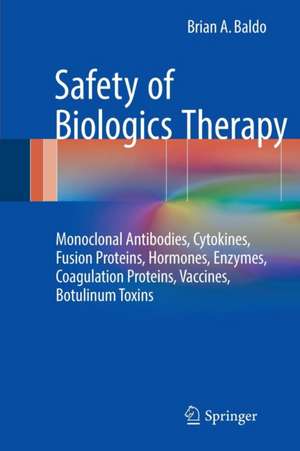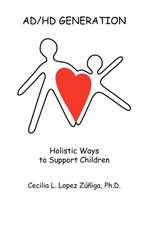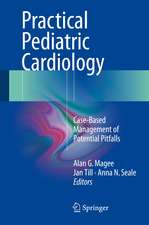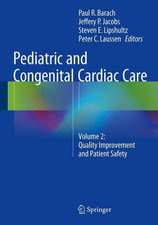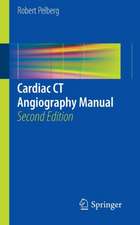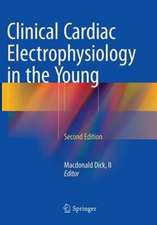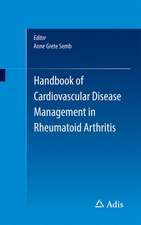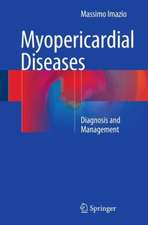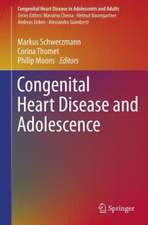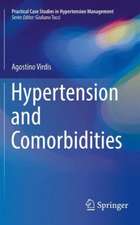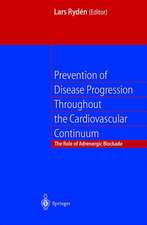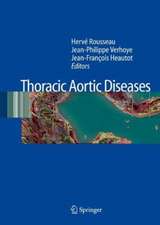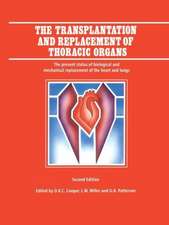Safety of Biologics Therapy: Monoclonal Antibodies, Cytokines, Fusion Proteins, Hormones, Enzymes, Coagulation Proteins, Vaccines, Botulinum Toxins
Autor Brian A. Baldoen Limba Engleză Paperback – 22 apr 2018
| Toate formatele și edițiile | Preț | Express |
|---|---|---|
| Paperback (1) | 860.35 lei 6-8 săpt. | |
| Springer International Publishing – 22 apr 2018 | 860.35 lei 6-8 săpt. | |
| Hardback (1) | 1183.14 lei 6-8 săpt. | |
| Springer International Publishing – 22 aug 2016 | 1183.14 lei 6-8 săpt. |
Preț: 860.35 lei
Preț vechi: 905.63 lei
-5% Nou
Puncte Express: 1291
Preț estimativ în valută:
164.68€ • 178.94$ • 138.42£
164.68€ • 178.94$ • 138.42£
Carte tipărită la comandă
Livrare economică 21 aprilie-05 mai
Preluare comenzi: 021 569.72.76
Specificații
ISBN-13: 9783319808192
ISBN-10: 3319808192
Pagini: 610
Ilustrații: XXI, 610 p. 106 illus., 89 illus. in color.
Dimensiuni: 155 x 235 mm
Greutate: 0.88 kg
Ediția:Softcover reprint of the original 1st ed. 2016
Editura: Springer International Publishing
Colecția Springer
Locul publicării:Cham, Switzerland
ISBN-10: 3319808192
Pagini: 610
Ilustrații: XXI, 610 p. 106 illus., 89 illus. in color.
Dimensiuni: 155 x 235 mm
Greutate: 0.88 kg
Ediția:Softcover reprint of the original 1st ed. 2016
Editura: Springer International Publishing
Colecția Springer
Locul publicării:Cham, Switzerland
Cuprins
1: Approved Biologics Used For Therapy and their Adverse Effects.- 2: Monoclonal Antibodies: Introduction.- 3: Monoclonal Antibodies Approved for Cancer Therapy.- 4: Other Approved Therapeutic Monoclonal Antibodies.- 5: Cytokines.- 6: Fusion Proteins.- 7: Peptide Hormones.- 8: Glycoprotein Hormones.- 9: Enzymes Approved for Therapy.- 10: Blood Coagulation.- 11: Vaccines.- 12: Botulinum Neurotoxins.- 13: Biosimilars.
Recenzii
“The best feature of the book is the chapter summaries. These are succinct and very readable –ideal for clinicians needing a quick reference, students requiring clear and precise details about the drug’s safety, or academics wanting a taste of the complexities that lie within the chapter’s text. Even for just these summaries, investment in this book is worthwhile.” (Nicholas Farinola, Medical Journal of Australia, Vol. 207 (4), August, 2017)
“This book has a very ambitious goal of providing an up-to-date review of a wide range of biologics used as therapeutic agents and it is clearly stated that there are many new biologics being developed that will be approved for clinical use in the near future. … this is a comprehensive compilation of information that will serve as a very useful reference book for clinicians and anyone interested in the use of biologics in medicine.” (Kevin Broady, Drug Safety, Vol. 40 (7), July, 2017)
“A comprehensive, concise and up-to-date guide to approved biologic medicines predominantly produced by rDNA technology. … The chapters follow a logical sequence and are well structured; the illustrations are of high quality, and the numerous tables convey accurate and pertinent information. The book is an excellent reference text for experts in the field and biologics industry stakeholders, and as a general educational reference book for students looking to expand their knowledge in the increasingly important area of biopharmaceutical products.” (Stephen Mahler, mAbs, Vol. 9 (6), July, 2017)
“Safety of Biologics Therapy: Monoclonal Antibodies, Cytokines, Fusion Proteins, Hormones, Enzymes, Coagulation Proteins, Vaccines, Botulinum Toxins … is a book that belongs on the shelf of everyone in the field of biologic therapies research and clinical practice. … an informative and easily readable book. It will be helpful for students, fellows, clinicians, and researchers who wish to improve their knowledge of the biology, pharmacological efficacy, and safety of biological drugs.” (Tadeusz Robak, Biologics Targets and Therapy, Vol. 11, 2017)
“The primary goal is to produce an up-to-date book on approved biologic therapies in this climate of rapid ever-expanding developments in biotherapeutic research … . This book targets all scientists and clinicians involved in development, handling, prescribing, administering, or managing patients with biologics for the treatment of diseases. … I highly recommend this exciting book to anyone who is involved in developing or administering these novel disease-targeted medications that fall under the broad umbrella term of biologics.” (Thomas L. Pazdernik, Doody's Book Reviews, November, 2016)“This book has a very ambitious goal of providing an up-to-date review of a wide range of biologics used as therapeutic agents and it is clearly stated that there are many new biologics being developed that will be approved for clinical use in the near future. … this is a comprehensive compilation of information that will serve as a very useful reference book for clinicians and anyone interested in the use of biologics in medicine.” (Kevin Broady, Drug Safety, Vol. 40 (7), July, 2017)
“A comprehensive, concise and up-to-date guide to approved biologic medicines predominantly produced by rDNA technology. … The chapters follow a logical sequence and are well structured; the illustrations are of high quality, and the numerous tables convey accurate and pertinent information. The book is an excellent reference text for experts in the field and biologics industry stakeholders, and as a general educational reference book for students looking to expand their knowledge in the increasingly important area of biopharmaceutical products.” (Stephen Mahler, mAbs, Vol. 9 (6), July, 2017)
“Safety of Biologics Therapy: Monoclonal Antibodies, Cytokines, Fusion Proteins, Hormones, Enzymes, Coagulation Proteins, Vaccines, Botulinum Toxins … is a book that belongs on the shelf of everyone in the field of biologic therapies research and clinical practice. … an informative and easily readable book. It will be helpful for students, fellows, clinicians, and researchers who wish to improve their knowledge of the biology, pharmacological efficacy, and safety of biological drugs.” (Tadeusz Robak, Biologics Targets and Therapy, Vol. 11, 2017)
Notă biografică
Brian A. Baldo (Retired)
AUA(Pharmacy); BSc(Hons); PhD
Formerly:
Royal North Shore Hospital of Sydney
Head, Molecular Immunology Unit
Kolling Institute of Medical Research and
University of Sydney
Sydney, NSW
AUSTRALIA
Textul de pe ultima copertă
This long overdue title provides a comprehensive, up-to-date, state-of-the art review of approved biologic therapies, with coverage of mechanisms of action, Indications for therapy, immunogenicity and a detailed examination of adverse effects and safety of the many and diverse therapeutic agents presented in a total of 13 chapters. It is predicted that by 2016, biologics will make up half of the world's 20 top-selling drugs and by 2018, biologic medicine sales will account for almost half of the world's 100 biggest selling drugs. Recombinant proteins dominate the growing list of the more than 200 approved biotherapeutic agents with targeted antibodies, fusion proteins and receptors; cytokines; hormones; enzymes; proteins involved in blood-clotting, homeostasis and thrombosis; vaccines; botulinum neurotoxins; and, more recently, biosimilar preparations, comprising the majority of approved biologics. Written with clinicians, other health care professionals, and researchers in mind, Safety of Biologics Therapy examines, in a single volume, the full range of issues surrounding the safety of approved biologic therapies. A good understanding of the risks and safety issues of modern biologics therapy is increasingly being demanded of all those connected with their development, handling, prescribing, administration and subsequent patient management. In addition to being of great value to clinicians in all branches of medicine, and to nurses, pharmacists and researchers, this book will prove invaluable for students taking undergraduate and graduate courses in the above disciplines and in the biomedical sciences.
Caracteristici
The only book available that covers in a single volume the full range of issues surrounding safety of approved biologic therapies In addition to presenting a detailed examination of adverse effects and safety The book covers mechanisms of action, Indications for therapy, and immunogenicity of the many and diverse biologic therapeutic agents Written to be definitive and comprehensive Relevant to clinicians in all medical disciplines, nurses, pharmacists, biomedical scientists, as well as students in these health care disciplines
